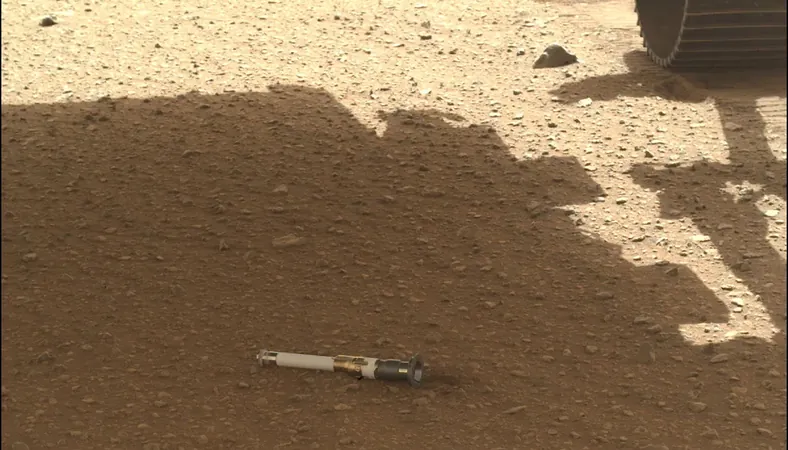
Why We Need to Urgently Bring Mars Samples to Earth
2025-05-14
Author: Ting
The Case for Mars Sample Return
For nearly half a century, Dr. Bruce Jakosky has been a pioneer in Mars research, leading missions like MAVEN that probe the Martian atmosphere. Alongside him, Dr. Scott Hubbard has also made significant contributions, from being NASA's first Mars Exploration Program Director to founding the Stanford Center for Commercial Space Transportation.
Mars exploration and the hunt for extraterrestrial life have been at the forefront of NASA’s agenda for over 30 years. A crucial next step in this exploration is to return samples of Mars back to Earth for rigorous scientific examination. However, alarmingly, the recent proposed budget from the President has skimped on funding for such a vital Mars Sample Return (MSR) mission. The Office of Management and Budget suggests waiting for a future human mission to handle sample returns, but the urgency can't be overstated.
The Scientific Imperative Behind Sample Return
The rationale for bringing Mars samples back to our laboratories is profound. Analyzing them will answer pivotal questions about Mars' history, planetary evolution, and whether life ever existed there. The consequences of finding or failing to find life on Mars would have significant implications for humanity and our understanding of our place in the cosmos.
While critics propose deploying more landers and rovers, the depth of analysis possible on Earth simply cannot be matched by the limited on-site capabilities of Martian missions. Gathering these samples collaboratively would bolster the credibility of our findings, especially if any evidence of life emerges.
The Risks of Delay—A Step Backward?
Deciding against or postponing the MSR mission would represent a major regression in our solar system exploration efforts. If we stall the return of precious samples collected by the Perseverance rover, we risk losing vital knowledge about Mars landing techniques, especially as layoffs in the space sector loom.
Currently, only two nations— the USA and China—have successfully navigated Mars’ atmosphere and conducted significant scientific research. Ignoring the MSR project would hand China the upper hand, as they aim to return their own samples by 2031.
Preparing for Human Exploration
Bringing back samples before sending human missions to Mars not only enhances our scientific understanding but also minimizes risks for astronauts. By studying Martian materials, we can assess potential hazards, such as Martian dust, and refine our planetary protection strategies to safeguard Earth from any unforeseen Martian microbes.
By postponing or delegating the sample-return task to astronauts, we would squander the unique advantages a robotic mission provides. Astronauts possess exceptional skills that could greatly enhance our sample collection and contextual understanding, making it crucial to utilize robotics for what they do best.
Conclusion: A Call to Action
The stakes couldn't be higher. We must advocate for funding and immediate action on the Mars Sample Return mission. The potential scientific breakthroughs and the advancement of human exploration depend on it. Let’s not wait—Mars is calling, and the answers we seek could redefine our understanding of life beyond Earth.




 Brasil (PT)
Brasil (PT)
 Canada (EN)
Canada (EN)
 Chile (ES)
Chile (ES)
 Česko (CS)
Česko (CS)
 대한민국 (KO)
대한민국 (KO)
 España (ES)
España (ES)
 France (FR)
France (FR)
 Hong Kong (EN)
Hong Kong (EN)
 Italia (IT)
Italia (IT)
 日本 (JA)
日本 (JA)
 Magyarország (HU)
Magyarország (HU)
 Norge (NO)
Norge (NO)
 Polska (PL)
Polska (PL)
 Schweiz (DE)
Schweiz (DE)
 Singapore (EN)
Singapore (EN)
 Sverige (SV)
Sverige (SV)
 Suomi (FI)
Suomi (FI)
 Türkiye (TR)
Türkiye (TR)
 الإمارات العربية المتحدة (AR)
الإمارات العربية المتحدة (AR)